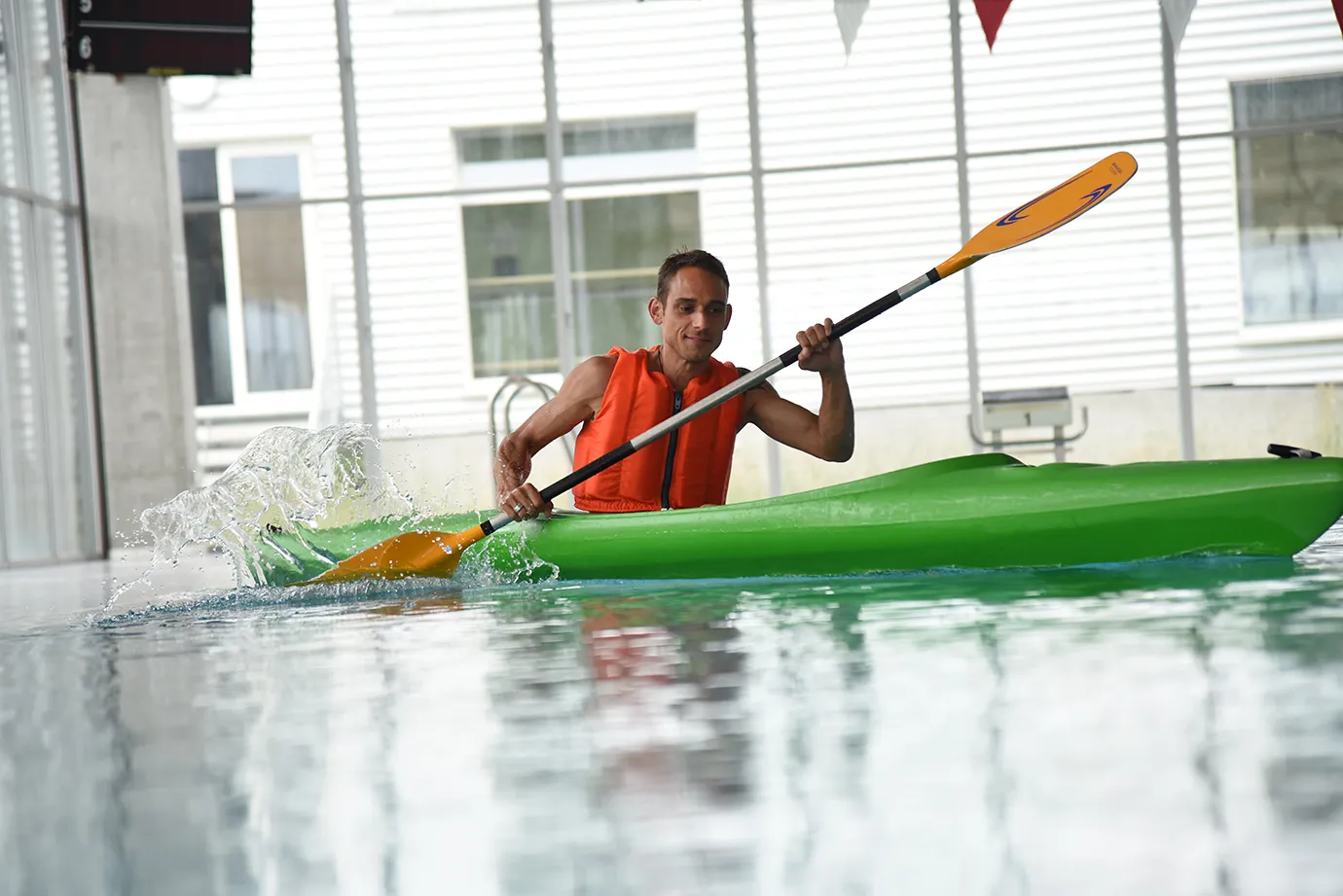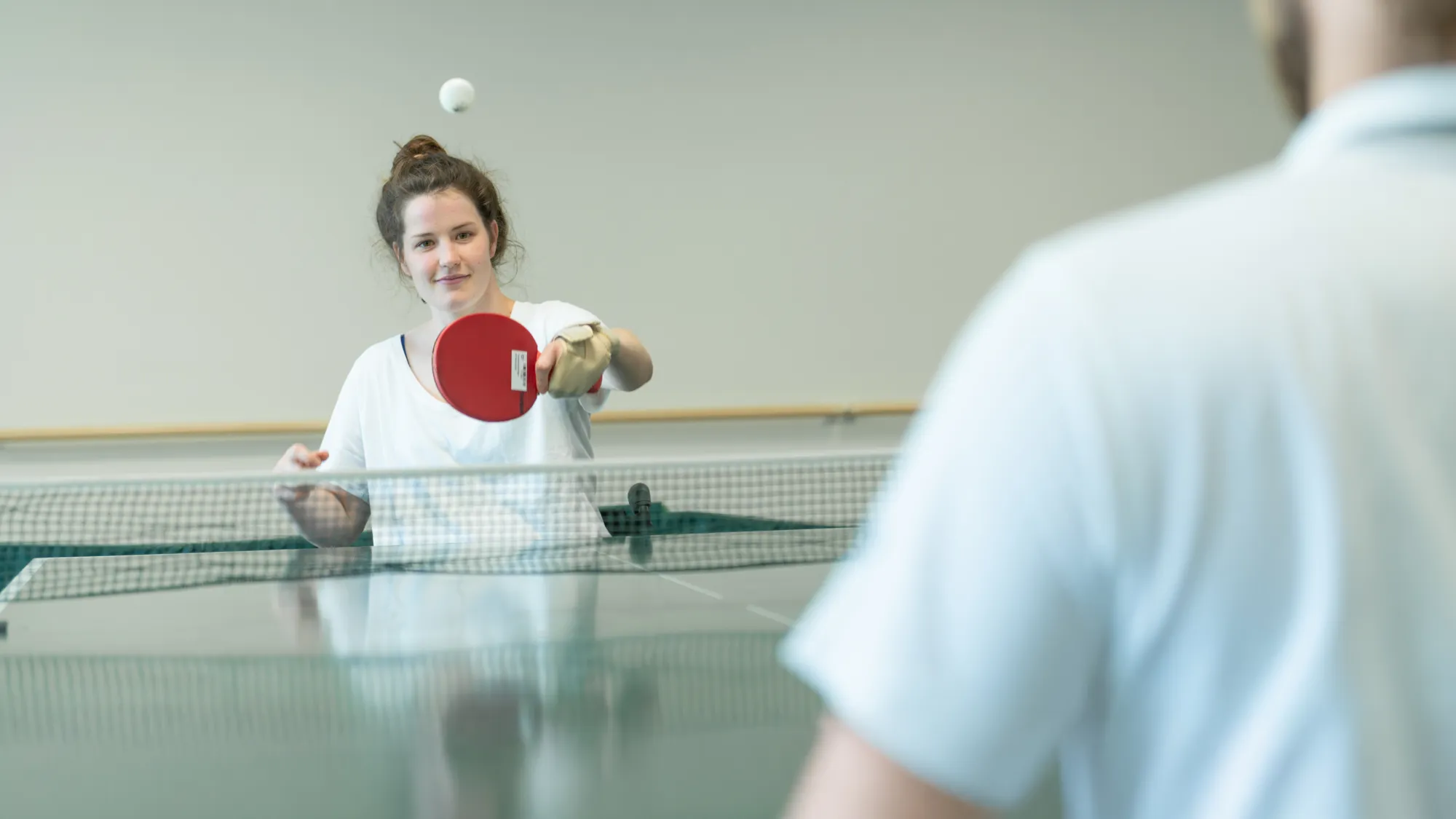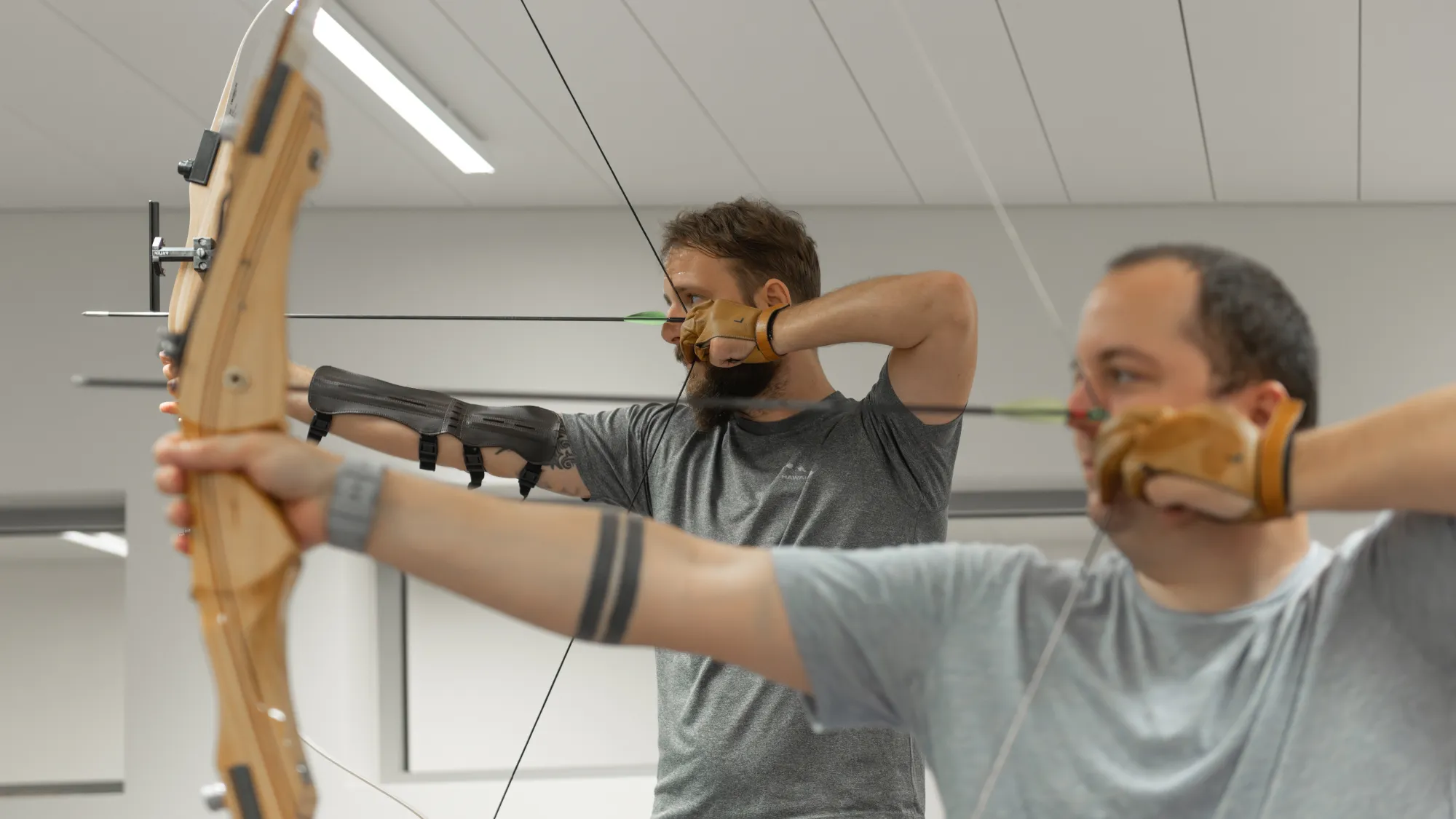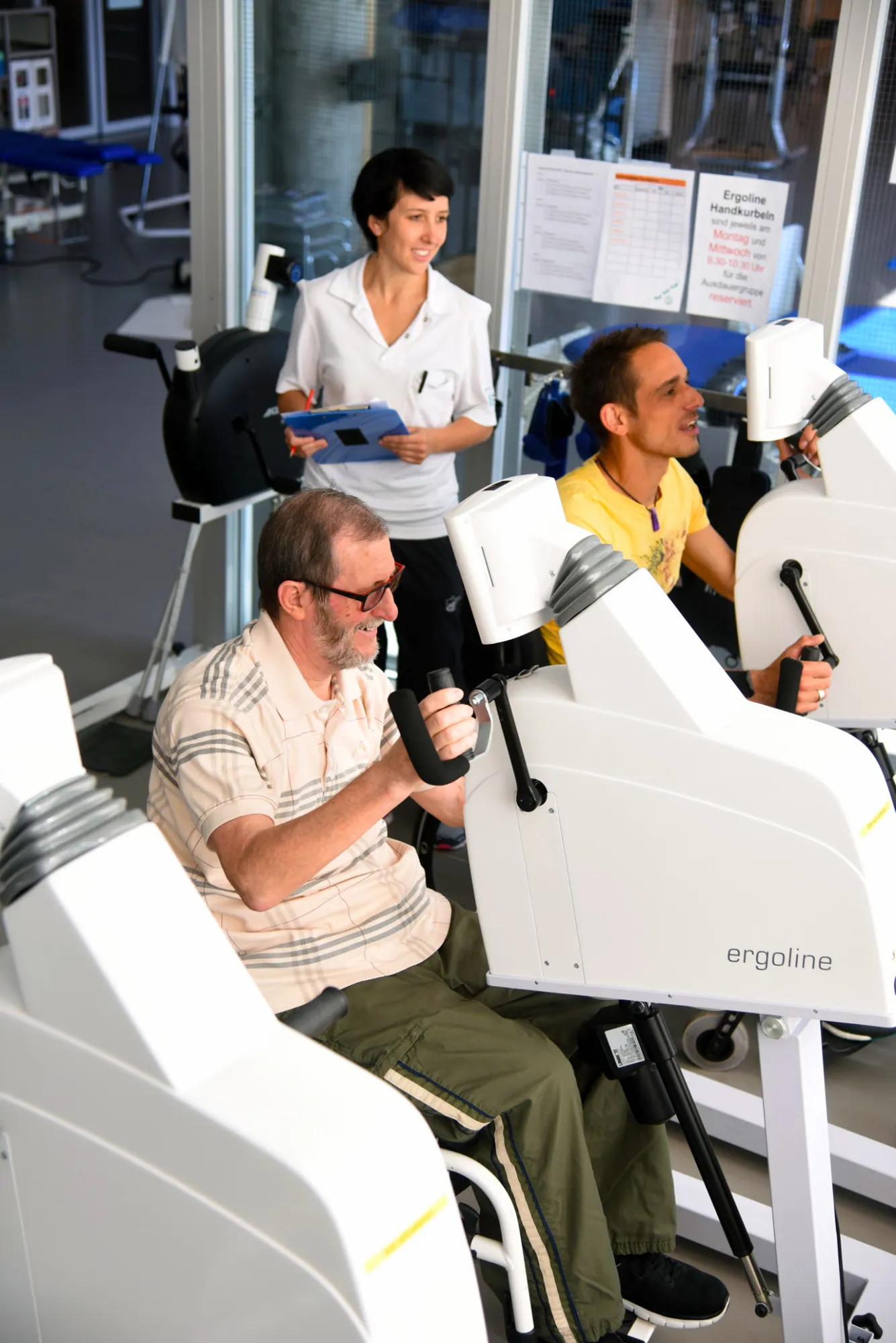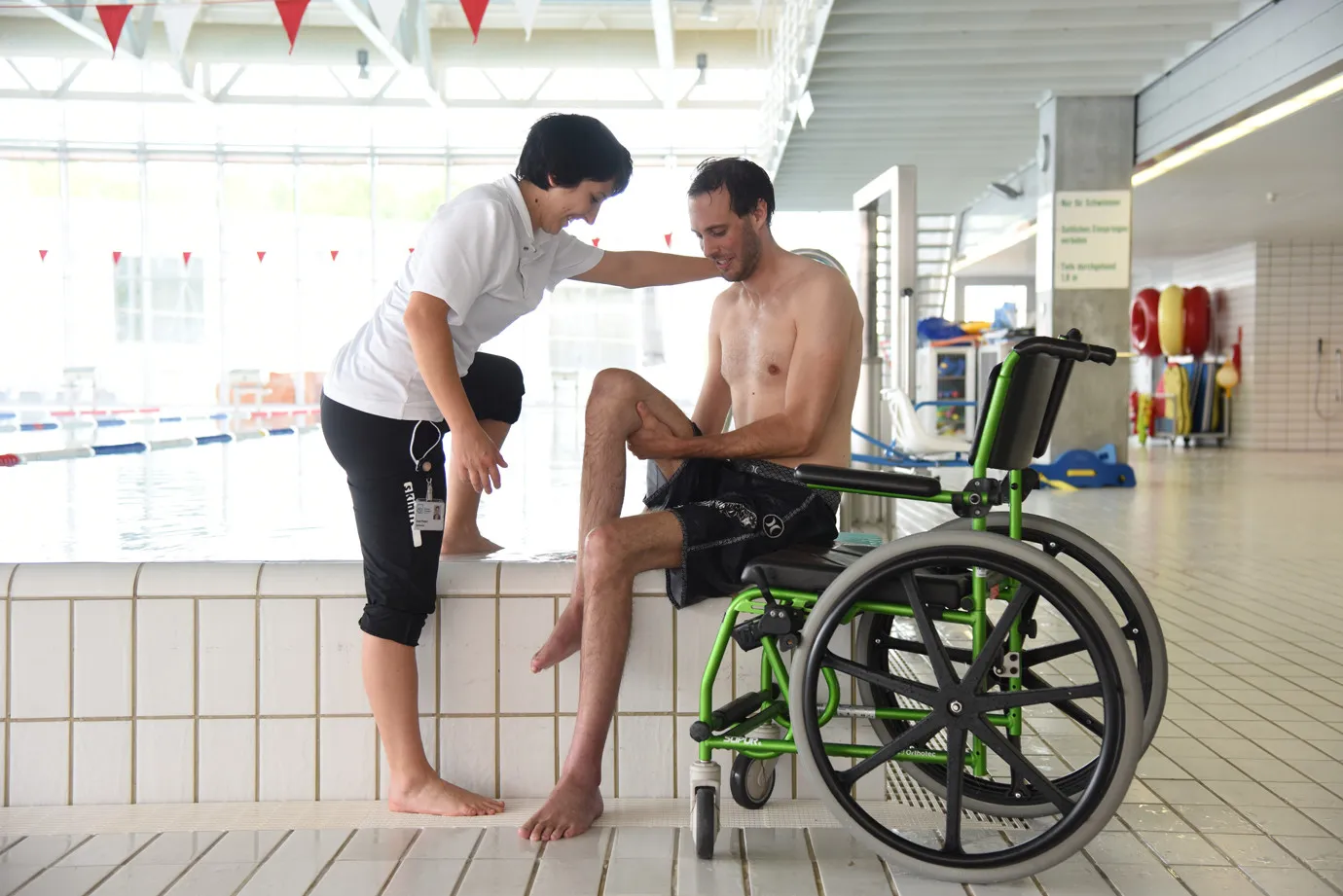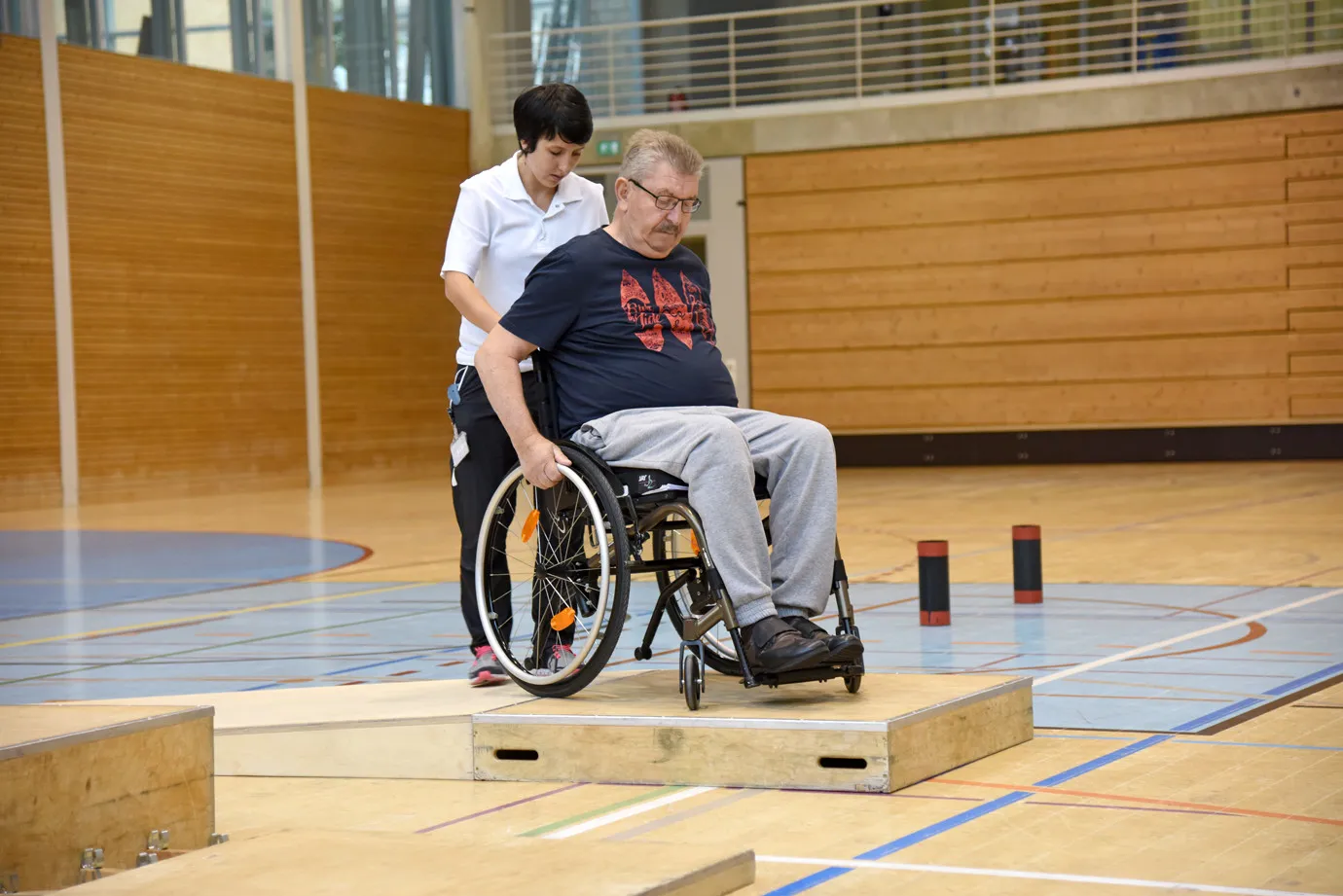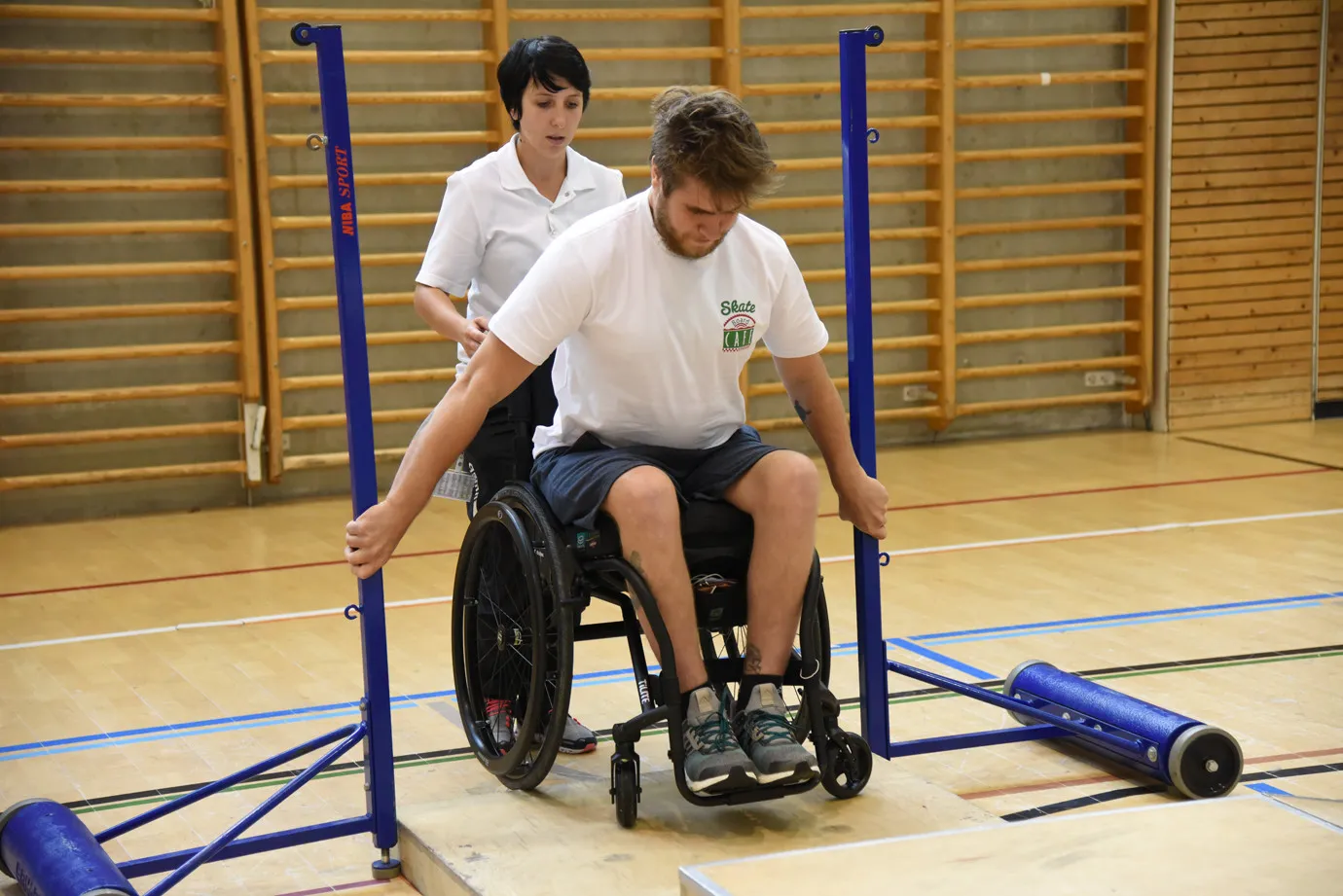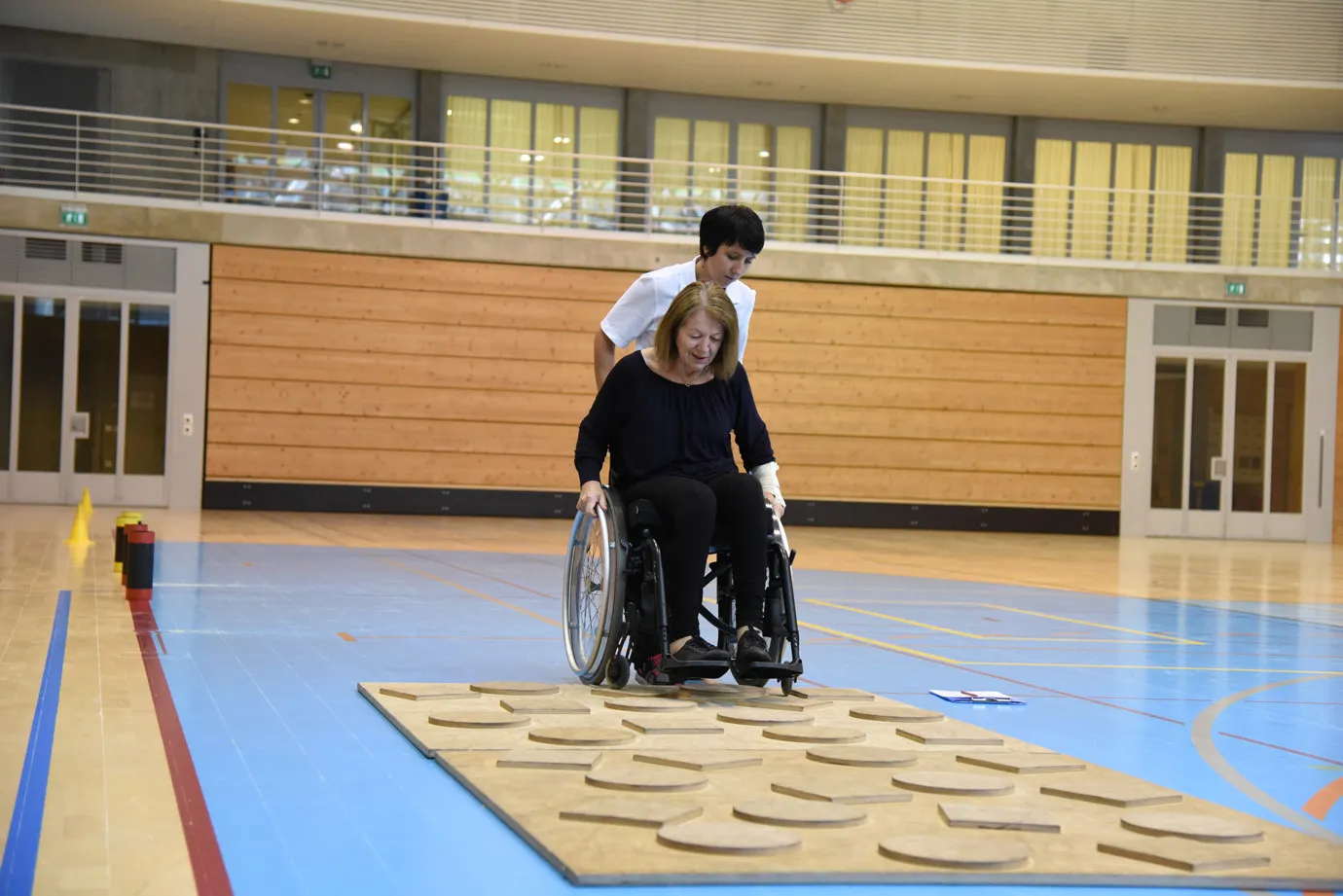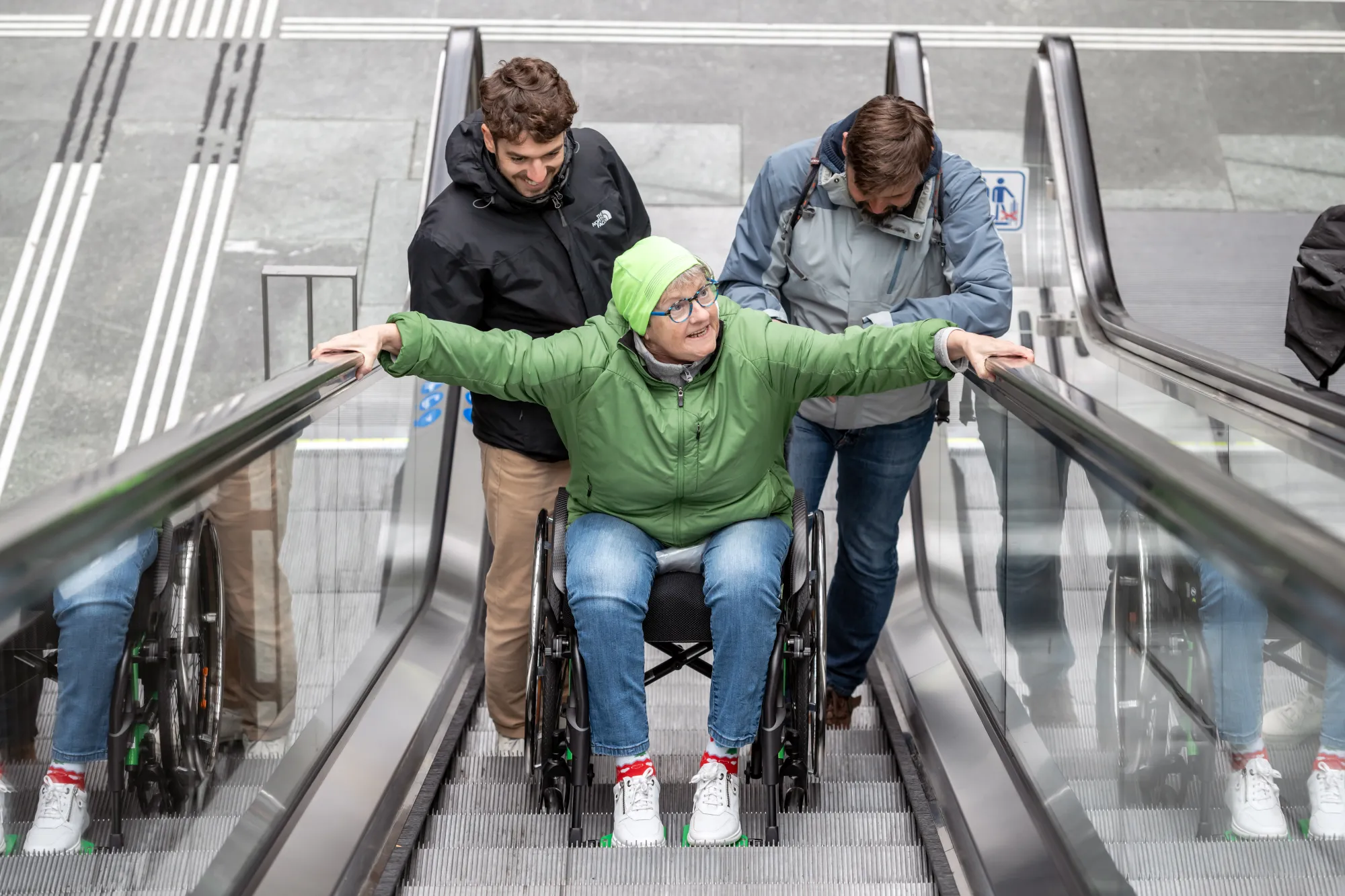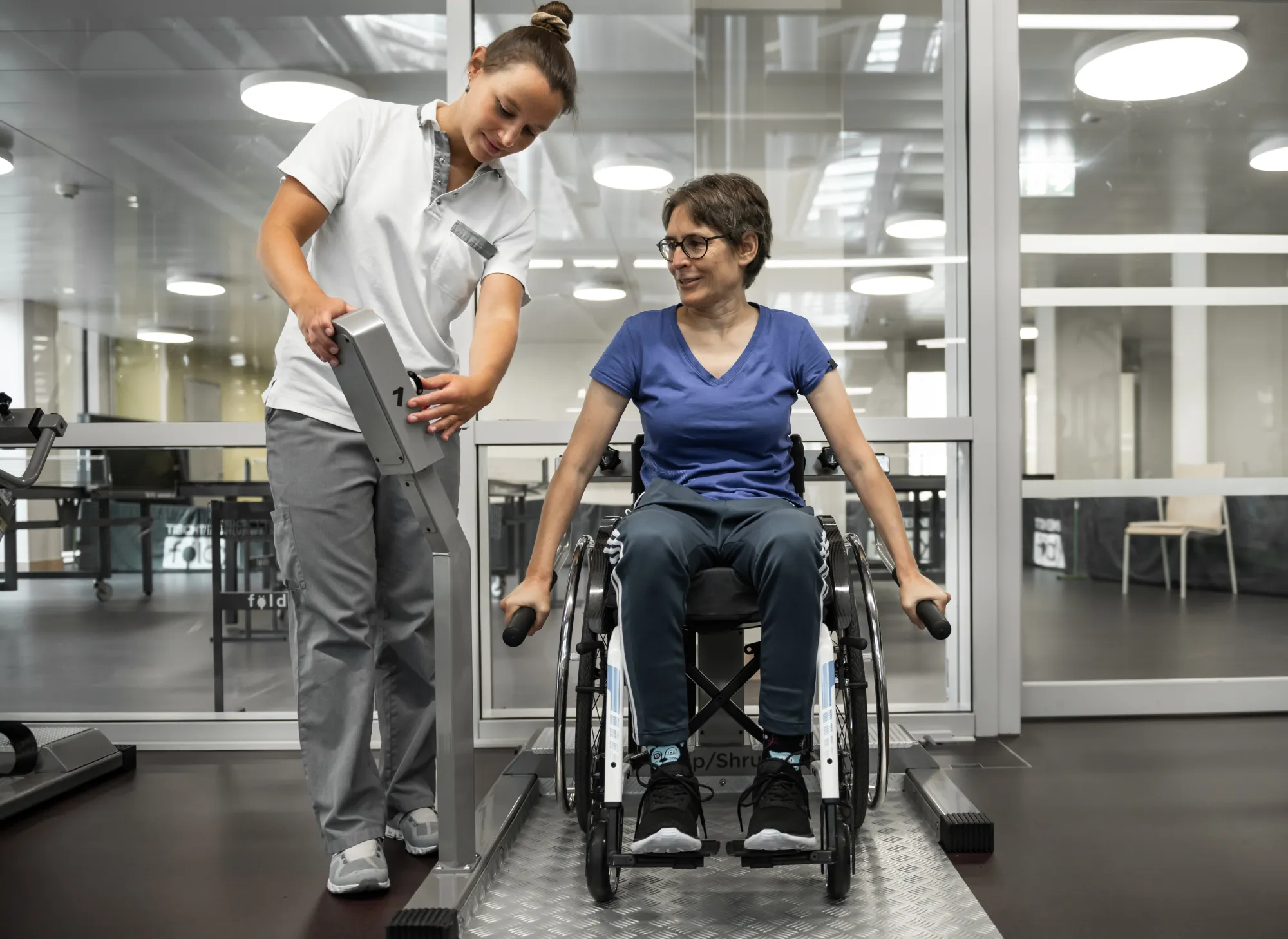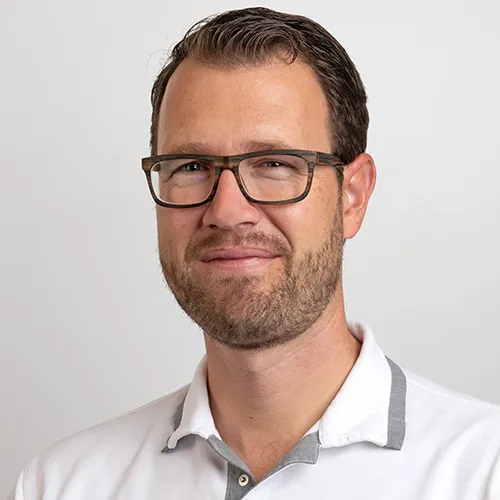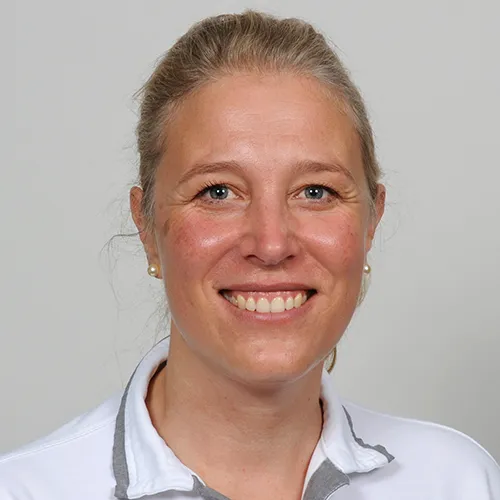
Sports Therapy
Sports therapy, in the interdisciplinary rehabilitation team, uses the instruments of sport to achieve rehabilitation objectives, for example improving strength, endurance, mobility, and movement coordination.
The patient’s rehabilitation objectives are pursued in close collaboration with the treating physiotherapists. The overriding goal for the patient is the highest possible level of participation, and therefore the best possible integration into social life. Sports therapy is not solely focused on optimising motor skills, but also on improving abilities in the wheelchair and promoting motivation to take part in sporting activity on a lifelong basis. In addition, regular sporting activity supports the prevention of diseases associated with a lack of exercise, which are even more significant in wheelchair users than they are for able-bodied people.
Individual and group therapy
The Sports Therapy Department at the Swiss Paraplegic Centre (SPC) offers daily group and individual therapies focused on the functions and objectives of individual patients. The patients have access to the sports hall, indoor swimming pool, weight room, archery range, table tennis room, athletics area, and the entire SPC premises. Alongside this, group therapies offer space to share experience from patient to patient – supporting social interaction and integration.
Strength, endurance, and balance
Medical Training Therapy (MTT)
The innervated muscles are trained in the weights room. In addition, a custom training programme is put together for each individual patient to support them in improving strength, coordination, muscle-building and strength endurance. A physiotherapist or sports therapy therapist is available in the weights room for several hours every day, offering support for individual training.
Endurance group
Group training takes place to increase endurance on arm and leg rowing machines. The training programme for the endurance group is built up over a total of four weeks. During this period, group members complete 3 endurance training sessions per week, using an interval or endurance method, with instruction. They then have the opportunity to continue their endurance training independently or, where applicable, to attend the group a second time.
Archery
Archery in small groups not only strengthens the shoulder and arm muscles, it also stabilises the torso, improves the ability to concentrate and provides balance training. In the case of patients with restricted hand function, there are various aids available to make the shooting technique simpler.
Swim training and aquajogging
In the swimming group, people can learn and practise various swimming techniques. You can work on different goals, such as cardiovascular training, exercises that balance out the back muscles, getting the legs moving (for example aqua jogging and other kicking techniques), and also on balance using a large board. In order to achieve the greatest possible independence, training is first provided on various transfer techniques for getting into and out of the swimming pool.
Table tennis
In addition to dexterity and reaction capability, the game of table tennis requires good concentration and good balance in the wheelchair or when standing. The reactive group game activates the entire innervated musculature, and can be played either sitting or standing.
Mobility
City training
During city training in Lucerne, users of wheelchairs with and without electric drive, as well as able-bodied people, can apply the techniques trained during therapy. In city training, participants try out travelling by train or bus, mounting or coming down from pavements, dealing with steps, travelling on escalators, and walking and driving on cobblestone streets and inclines. The small groups are led by occupational therapists, physiotherapists, and sports therapists.
Technique (in the wheelchair)
In technique training, it is necessary to find the best and most economic propulsion technique possible. In addition, the patients are confronted with everyday obstacles they are likely to face such as ramps, steps or pavements, in order to gain the best possible level of safety in the wheelchair. Technique training is offered at two levels of difficulty: Level 1: Riding on 4 wheels, tipping over thresholds and small steps, handling the wheelchair in a domestic environment. Level 2: Riding and balancing on rear wheels, being able to travel over smaller and larger steps and ramps, dealing with everyday obstacles outside the home.
Additional sports services
Handbike/recumbent bike
Trying an adaptive bike, a recumbent bike, racing wheelchair, Hase tricycle/tandem or bike for the first time is usually done as one-on-one therapy. In summer, there is also a weekly group to practise using hand bikes and recumbent bikes.
Kayaking
Paddling for complete novices is available several times a year in the SPC swimming pool. Kayaks provide great support for coordination, endurance, balance when seated and torso stability. At the same time, strength and timing must also be used correctly to move the vessel safely and in the right direction.
Skiing
For those interested in skiing and winter sports, the Sports Therapy department offers two taster days per year for the monoski bob or TetraSki. A 1:1 lesson is provided to offer instruction and training on how to use the monoski bob. The experienced ski instructors from Sörenberg ski school have special training in the monoski bob and TetraSki with wheelchair users. Using the monoski bob requires strength, endurance and good coordination.
Seasonal sports services
In addition, the Sports Therapy department offers seasonal sports services (in groups or, where needed, as individual therapy) to try, such as:
- Lake swimming
- Tennis
At the end of rehabilitation, patients are offered the opportunity to take part in regular club training together with external wheelchair athletes, in collaboration with the Swiss Paraplegics Association (SPA) and the Zentralschweiz Wheelchair Club.
Administration office hours
Monday to Thursday:
7:30 am to midday
1:30 pm to 5 pm
Friday:
7:30 am to midday
1:30 pm to 4 pm
You may also be interested in
Werden Sie jetzt Mitglied und erhalten Sie im Ernstfall 250 000 Franken.
